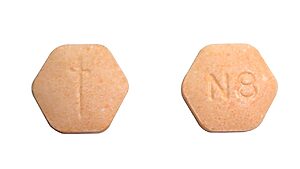Drug use in sports is already common, but for Olympians who are striving to be the best of the best, the pressure to succeed may push them over the edge. As a result, they may use drugs or alcohol and in some cases, become addicted to these substances.
Olympic Athletes, Addiction, & Substance Use
Whether they are trying to enhance their performance or coping with physical pain, substance use among Olympians is more common than many people realize. By some accounts, almost half of athletes who participated in the 2011 World Championships in Athletics admitted to using banned substances even though most were never caught.1 Others will take large amounts of painkillers to try to nurse an injury. Almost a quarter of physicians attending the 2016 Rio Olympics reported routine analgesic or anti-inflammatory medication use among 30% or more of the athletes they treated.2 Alongside trying to help their physical performance, some Olympians will use substances to cope with poor mental health. Although chasing glory, being an Olympian comes with a large amount of pressure and may also be lonely at times. Some Olympic athletes may even start to misuse drugs and alcohol after their Olympic career is over as they struggle to cope with retirement and find a new identity outside their sport. An analysis found that 34% of current elite athletes and 26% of former elite athletes struggle with anxiety or depression.3 In the same analysis, 19% of current elite athletes and 16% of former elite athletes also struggled with alcohol misuse.3
Former Olympic Athletes in Recovery & Battling Substance Use
We watched them perform on an international stage, and we’ve cheered them on in their quest for gold. While Olympic athletes may go down in the books for their physical feats, there is a lot we may not know about them. Behind closed doors, some of your favorite stars are also former Olympians in addiction recovery.
Michael Phelps
Although the extent of Michael Phelps’s substance use is a bit unknown, the world-famous swimmer made headlines when a photo of him allegedly smoking a bong surfaced and has also had two DUIs. Hitting what he described as rock bottom, Phelps went to a co-occurring disorders rehab soon after his second DUI. Although he has never outright admitted to being an alcoholic, Phelps has spoken out about his mental health.4
Oksana Baiul
Olympic Ukrainian figure skater Oksana Baiul took gold in the 1994 Olympics as a teenager but found herself struggling with alcohol use soon after. As her drinking problems continued and after she got in a car accident while under the influence, Oksana Baiul decided enough was enough. She began training again, got alcohol addiction treatment, and stopped drinking. While she never found Olympic glory again, Oksana Baiul is now a former Olympic athlete in recovery and cites her sobriety as “more important than Olympic gold.”5,6
Ryan Lochte
Spending a lot of time on Michael Phelps’s tail, Ryan Lochte is not short on Olympic medals, but outside the pool, the Olympian struggling with his drinking. In college, the swimmer frequently showed up to practice hungover or sometimes even drunk. Finally, after getting suspended for lying about being robbed at gunpoint at the Rio Olympics and many other alcohol-related incidents, Lochte got treatment. Not an entirely sober Olympic athlete, Lochte still has the occasional beer, but his drunken days are far behind him. At 36, he was still chasing Olympic glory hoping to make a spot on the Olympic team for the 2021 Tokyo Olympics but was beat out by the next generation of Olympic swimmers.7,8
Nile Wilson
A bronze medalist in the 2016 Olympic games for British gymnastics, Nile Wilson suddenly had to take a step back from his gymnastics career after neck surgery in 2019. The former Olympian admits that his mental health plummeted after the surgery and his substance use began. Nile Wilson took codeine, a highly addictive painkiller, every day and also began drinking in excess to cope with his sudden decrease in physical ability. He admits to being suicidal at times as well but has since started to make mental health a priority. He is now speaking out and released a documentary on mental health and addiction in elite athletes called The Silent Battle. He also announced his retirement from elite gymnastics this year preceding the 2021 Tokyo Olympics.9,10 While their physical feats may leave us dazzled and amazed, Olympians are not immune to addiction. Mental health problems and substance use among Olympic athletes are major problems and should be more closely monitored. These athletes should also be encouraged to ask for help. If you or someone you care about is struggling with addiction, it is okay to step forward. Our Texas detox center is here to help people move past their substance use and build a better life. Contact us today to learn more.













